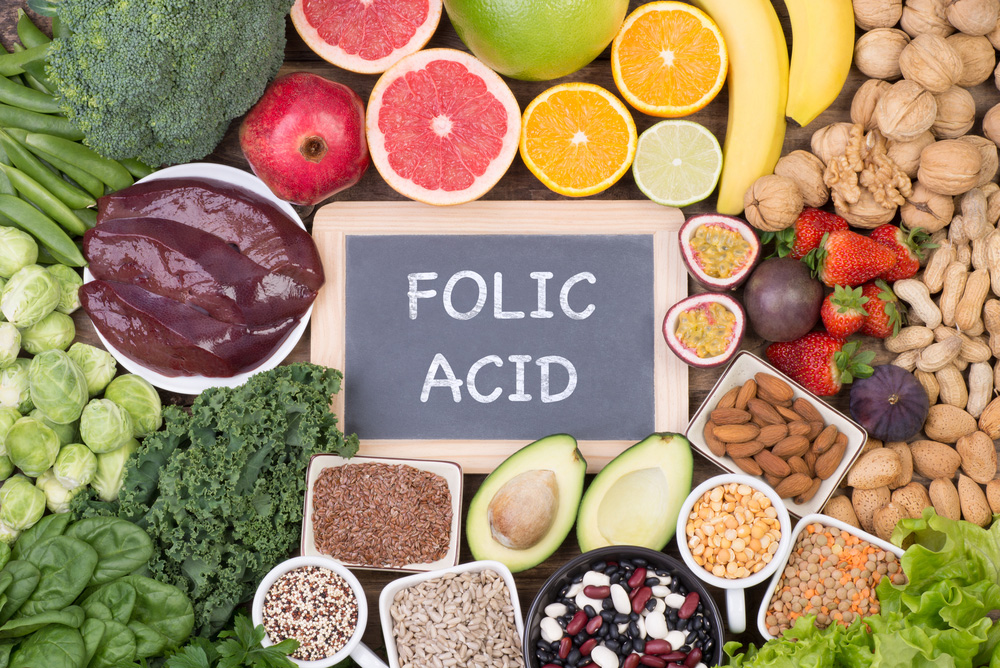Iron & Folic Acid for the Prevention and Treatment of Deficiencies

Iron and folic acid are vital nutrients that are integral to our overall health and well-being. In the body, Iron is necessary for the production of hemoglobin, a protein responsible for carrying oxygen to the body’s cells, while folic acid is vital for the synthesis of DNA and red blood cell production.
Deficiencies in these nutrients can lead to various health issues, making it important to understand their significance and the methods of prevention and treatment available.
Iron Deficiency
Iron deficiency is one of the most common nutrient deficiencies worldwide, affecting approximately 25% of the global population. It is especially prevalent in developing countries and among certain population groups, such as pregnant women and young children.
The World Health Organization (WHO) estimates that iron deficiency anemia affects more than 30% of non-pregnant women, 42% of pregnant women, and 47% of preschool-age children globally.
Iron allows red blood cells to carry oxygen throughout the body. When iron levels are insufficient, the body cannot produce enough healthy red blood cells, leading to anemia. Symptoms of iron deficiency anemia may include fatigue, weakness, shortness of breath, pale skin, and impaired cognitive function.
Folic Acid Deficiency
Folic acid, also known as folate or vitamin B9, is necessary for the production of DNA and red blood cells. It is especially important during periods of rapid growth, such as pregnancy and infancy. Folic acid deficiency is relatively common and can occur due to inadequate dietary intake, malabsorption issues, or increased requirements during pregnancy.
A lack of folic acid during pregnancy can lead to neural tube defects, such as spina bifida, in the developing baby. Therefore, it is recommended that all women of childbearing age consume a daily folic acid supplement to ensure sufficient levels before and during pregnancy.
Aside from its role in pregnancy, folic acid deficiency can also result in anemia and impaired cell division. Folic acid deficiency anemia symptoms may include weakness, fatigue, irritability, and difficulty concentrating.
Dietary Treatment
Dietary modifications can play a significant role in preventing and addressing iron and folic acid deficiencies. Here are some dietary recommendations to help increase the intake of these nutrients:
Iron-Rich Foods
- Red meat: Beef, lamb, and pork are excellent sources of heme iron, which is more easily absorbed by the body.
- Poultry: Chicken and turkey provide a good amount of iron.
- Fish and seafood: Oily fish like salmon, sardines, and mackerel, as well as shellfish such as clams, mussels, and oysters, are rich in iron.
- Legumes: Beans, lentils, chickpeas, and soybeans are high in iron and can be added to various dishes.
- Leafy green vegetables: Spinach, Kale, Collard greens and Swiss chard are packed with iron.
- Fortified cereals and grains: Look for breakfast cereals, bread, and pasta fortified with iron.
Enhancing Iron Absorption
- Vitamin C: Consuming foods rich in vitamin C alongside iron-rich foods can enhance iron absorption. Citrus fruits, strawberries, tomatoes, and bell peppers are great sources of vitamin C.
- Avoiding inhibitors: Certain compounds like phytates found in whole grains and oxalates in foods like spinach and beet greens can inhibit iron absorption. While these foods are nutritious, it’s beneficial to vary your diet and not solely rely on them for iron intake.
Folic Acid-Rich Foods
- Leafy green vegetables: Broccoli, Brussels sprouts, and Asparagus are excellent sources of folate.
- Citrus fruits and juices: Oranges, Grapefruits, and their juices are high in vitamin C and provide folic acid.
It’s important to note that dietary modifications alone may not always be sufficient, especially in cases of severe deficiencies or when specific medical conditions impair absorption.
Medical Prevention
Iron and folic acid deficiencies can have serious consequences on health, but fortunately, they are preventable and treatable.
Iron supplements, like Fefol, are commonly prescribed to individuals with diagnosed iron deficiency anemia. These supplements come in various forms, such as ferrous sulfate, ferrous fumarate, and ferrous gluconate. It is important to follow the dosage instructions a healthcare professional provides, as excessive iron intake can have adverse effects.
Similarly, folic acid supplements are widely available and are often recommended for pregnant women, women planning to conceive, and individuals with confirmed folic acid deficiency. The recommended daily intake of folic acid for adults is 400 micrograms, but higher doses may be prescribed in specific cases.
Say No To Deficiencies
Recognizing the potential health consequences of these deficiencies and taking proactive measures is crucial for safeguarding overall well-being. Prevention through dietary modifications, such as incorporating iron and folic acid-rich foods into meals, is important. However, individual needs may vary, and in some cases, supplementation is needed.
Consult with a healthcare professional to determine the appropriate dosage and duration of supplementation based on individual needs.

